- Home
- Karen Marie Moning
The Dark Highlander Page 20
The Dark Highlander Read online
Page 20
The lines feathering Silvan’s deep brown eyes, winging upward at the outer edges, were from squinting in low light as he labored over his work. Silvan was a fine scribe, possessing an enviably steady hand, and had devoted himself to recopying, with exquisitely embellished carpet pages, the older tomes whose ink had faded o’er time.
When he’d been a lad, Dageus had thought his da had the wisest eyes he’d ever seen, full of special, secret knowledge. He realized he still thought that. His da had never been toppled from his pedestal.
His gut clenched. Mayhap Silvan had never fallen, but he certainly had. “Go ahead, Da,” he said tightly. “Roar at me. Tell me how I failed you. Tell me how I’ve been naught but a disappointment. Remind me of my oaths. Throw me out if you’re of a mind to, for I’ve no time to waste.”
Silvan’s head jerked in sharp negation.
“Tell me, Da. Tell me how Drustan never would have done such a thing. Tell me how—”
“You truly wish me to be telling you that your brother is less of a man than you?” Silvan cut him off, his voice low and carefully measured. “You need to be hearing me say that?”
Dageus stopped speaking, his mouth ajar. “What?” he hissed. “My brother is no’ less of a—”
“You gave your life for your brother, Dageus. And you ask your father to condemn you for that?” Silvan’s voice broke on the words.
Much to Dageus’s horror, his da crumpled. His shoulders bowed and his lean frame jerked. Suddenly his eyes were glistening with tears.
Och, Christ. Dageus cursed silently, bearing down hard on himself. He dare not weep. No cracks. Cracks could become crevices and crevices canyons. Canyons a man could get lost in.
“I thought I’d never see you again.” Silvan’s words echoed starkly in the stone hall.
“Da,” he said roughly, “yell at me. Berate me. For the love of Christ, scream at me.”
“I can’t.” Silvan’s wrinkled cheeks were wet with tears. He skirted the table and grabbed him, hugging him fiercely, pounding him on the back.
And weeping.
If Dageus lived to be a hundred, he never wanted to see his father weep again.
It was some time later, after Nell had appeared and the whole awful matter of tears had been repeated, after she’d bustled about preparing a light repast, after she’d retired again to check on his wee brothers, that the conversation turned to the grim purpose of why he’d returned.
Speaking in brisk, detached tones, Dageus updated Silvan on all that had transpired since last he’d seen him. He told him how he’d gone to America, and searched the texts, only to finally admit that he was going to have to ask Drustan for help. He told him of the strange attack on Chloe, and of the Draghar. He told him they’d discovered the texts about the Tuatha Dé Danaan had disappeared, and that it seemed intentional.
Silvan frowned at that. “Tell me, lad, did Drustan check beneath the slab?”
“Beneath the slab in the tower? The one on which he slumbered?”
“Aye,” Silvan said. “Though to date I’ve put but two texts there, I’ve been planning to find aught I could that may be of help and seal them away beneath it. In anticipation of that, I left clear instructions for Drustan to look there.”
Dageus closed his eyes and shook his head. Had this trip been unnecessary? Might he have avoided all of it? Probably. In a few more years, it was quite likely that Silvan would have gathered up every tome he’d been searching for and tucked them beneath the slab. They’d been there in the twenty-first century the whole time. “Where were the instructions? In the letter you left for him?”
“Aye.”
“The same letter in which you told him what I’d done?”
Silvan nodded again.
“Did you spell it out, or say something cryptic, Da?” Knowing his father, it had been cryptic.
Silvan scowled. “I said, ‘I left some things for you beneath the slab,’” he replied peevishly. “How much clearer must a man be?”
“Much more, because apparently Drustan never looked. ’Tis my guess he was so distraught by the news your missive contained, that he crumpled the letter and threw it away. From the way you worded it, like as not, he thought you’d left mementos or some such trifles.”
Silvan looked sheepish. “I hadn’t thought of that.”
“You said you’ve been searching the tomes. Have you discovered anything yet?”
A wary expression flickered across his father’s features. “Aye, I’ve been looking, but ’tis slow work. The older texts are much more difficult to read. There was no uniformity of spelling, and ofttimes they had little grasp of the alphabet.”
“What about—”
“Enough about the texts for now,” Silvan cut him off. “There’ll be time enough on the morrow. Tell me of your lass, son. I must confess, I was surprised to see you’d brought a wee woman with you.”
Dageus’s heartbeat quickened and his veins were filled with that peculiar icy heat. His lass. His.
“Though she seemed to be having a hard time fathoming your use of the stones as a bridge betwixt the centuries, I sensed a strong will and fiery mind. I suspect she’ll come around without too much fuss,” Silvan mused.
“’Tis my belief as well.”
“You haven’t told her what’s wrong with you, have you?”
“Nay. And doona be telling her. I’ll tell her when the time is right.” As if there would ever be a “right” time. Time was his enemy now as never before.
A silence fell then. An awkward, ponderous silence filled with questions but too few answers, rife with unspoken worries.
“Och, son,” Silvan said finally, “it was killing me, not knowing what had become of you. ’Tis glad I am you’ve returned. We’ll find a way. I promise.”
Later, Silvan pondered that promise ruefully. He paced, he grumbled, he cursed.
Only after Dageus had retired abovestairs and the wee hours of the morn had filled his weary bones with disenchantment—by Amergin, he was three score and five, too old for such doings—did he admit that by now, he should have something to show for his work. He’d not been entirely forthright with Dageus.
He’d been devouring the old texts since the night Dageus had confessed and fled. Oddly, though he’d damn near torn the castle apart, he couldn’t find any documents predating the first century. And he knew they’d once had many. They were referenced in many of his texts in the tower library.
Yet he couldn’t find the bletherin’ things, and granted the castle was enormous, but one would think one could keep track of one’s own library!
According to the legends, they even had the original Compact that had been sealed betwixt the race of man and fairy. Somewhere. God only knew where. How could they not know?
Because, he answered himself wryly, when so much time passes that a tale becomes far removed from its origination, it loses much of its reality.
Though he’d dutifully told his sons the Keltar legends, he’d privately thought that the tales from millennia past were surely embellished a bit, possibly a fabricated creation-myth of sorts, to explain away the Keltar’s unusual abilities. Though he’d obeyed his oaths, a part of his mind had never fully believed. His daily purposes had been purpose enough: the Druid rituals marking the seasons, the care of the villagers in Balanoch, the education of his sons and his own studies. He hadn’t needed to believe all the rest of it.
The sad truth was, not even he’d really believed there was some ancient evil in the in-between.
How much we’ve forgotten and lost, he brooded. He’d scarce given thought to the legendary race that had allegedly set the Keltar on their course. Not until his son had gone and broken his oath, thus violating an alleged Compact whose existence had become far more myth than reality.
Well, he brooded darkly, now at least we know the old legends are true.
Little comfort, that.
Nay, his search had failed to unearth even an iota of useful information. Indeed, he’d
begun to fear that the Keltar had been unforgivably careless in their guardianship of the old lore, that Dageus’s broken oath was merely one more failing in a long list of failings.
He suspected they’d quit believing centuries ago, pushing away the mantle of a power that exacted too high a price. For generations, the Keltar men had been growing increasingly morose, weary of protecting the secret of the stones, weary of hiding away in the hills and being regarded with fear. Weary of being so damned different.
As the dark ages gave way to lighter ones, so, too, did the Keltar seem to wish to lay down the burden of their past.
His son thought he had failed, but Silvan knew better. They’d all failed.
On the morrow they would sit down with the ancient writings and search anew. Silvan hadn’t the heart to tell his son that he’d nearly finished searching, and if there was some answer to be found in them, he was too dense to discern it.
His eyes narrowed and his thoughts turned to the wee lass his son had brought with him. When the storm had wakened him—a storm the likes of which he’d heard but a few times before—he’d rushed outside, praying ’twas Dageus returning.
It had taken some time for the fog to clear, and though he’d called out, Dageus had not replied.
When the fog had lifted, Silvan had understood why.
In Silvan’s estimation, ’twas the lass that might yet prove to be their finest hope. For so long as his son loved her—and he did, though he knew it not himself—well, evil didn’t love. Evil tried to seduce and possess and conquer, but it didn’t feel for the object of its desire. So long as love was alive in Dageus, they had a toehold, however small.
Och, he and the lass were going to become close, Silvan decided. She was going to learn about the young Dageus who’d once strolled these heathery hills, nurturing the earth and healing the wee beasties, the gentle Dageus with the wild heart. He and Nellie would see to it. Dageus’s gifts had always leaned toward the healing arts, and now he was in need of healing himself.
If the lass didn’t already love his son—he’d not had sufficient chance to probe her—he would do all in his power to win her for him.
Doona poke at them, Dageus had warned him bitterly, meaning the ancient evil within him.
But Silvan had poked. Silvan always poked. And despite the barriers his son had erected, buffering it a bit, it had poked back and Silvan was, quite simply, horrified by what was growing inside Dageus.
18
“I know I’m dreaming,” Chloe announced conversationally the next morning as she descended the stairs to the great hall. She slipped into a chair, joining Silvan, Dageus, and a woman she’d not yet met—er, dreamed about—for breakfast.
Three pairs of eyes regarded her expectantly and, heartened by the attention, she continued.
“I know I didn’t just use the equivalent of a little outhouse upstairs in a closet.” With straw for toilet paper, no less. “And I know I’m not really wearing a gown, and I’m certainly not wearing”—she peered down at her toes—“beribboned little satin slippers.” Straightening in her chair, she scooped a spoon of jam from a dish. “And I know this strawberry jam is just a figment of—eww—what is this?” Her lips puckered.
“Tomato preserves, m’dear,” the man who’d been identified to her earlier in the dream as Silvan replied mildly, with a smile he tried to hide.
Not good, Chloe thought. In a dream, the dreamer controlled how things tasted. She’d been thinking sweet strawberry jam and gotten a nasty, unsweetened vegetable. More proof, she thought dismally, as if she’d needed it. She glanced about the table for something to drink.
Dageus slid a mug of creamy milk across the table to her.
She drank deeply, peeking at him over the rim. She’d had erotic dreams about him all night. Frighteningly intense dreams in which he took her in every way it was possible for a man to take a woman. And she’d loved every minute of it, had awakened feeling all soft and kittenish, nearly purring. His black hair was pulled back from his sculpted face in a loose braid. He wore an unlaced linen shirt that revealed a sinful expanse of golden, muscled chest. Big, beautiful man. Sexy, scary man.
Chloe wasn’t stupid. She knew she wasn’t dreaming. A part of her had acknowledged it last night or she wouldn’t have fainted. That, in a strange way, seemed proof itself: a dreaming mind fainting from the “reality” of its own dream? An already unconscious mind slipping into unconsciousness? She could get tangled up in that thought if she pondered it too long.
Upon awakening this morning, she’d wandered the upper floor, scurrying down corridors, peeking into chambers and out windows, piecing together bits of information. She’d touched, peered, shaken, even broken a few minor things that she’d deemed replaceable as part of her examination.
All of it, the textures and scents and tastes were simply too tangible to be a figment of her unconscious mind. Furthermore, dreams had narrow focuses; they didn’t come complete with periphery guards and servants going about duties she’d never conceived of, beyond the windows.
She was in Maggie MacKeltar’s castle . . . but not quite that castle. There were additions missing, an entire wing not yet constructed. Furniture that hadn’t been there yesterday, more furniture that was missing today, to say nothing of all the new people! To all appearances—impossible though it was to fathom—it was Maggie’s castle nearly five centuries ago.
“Aren’t you going to introduce me?” She slid Dageus’s mug back and glanced curiously at the older, fortyish woman. She couldn’t be his mother, she mused, unless she’d had him incredibly young, even for medieval times. Dressed in a lapis gown similar to her own, the lovely woman had a gently faded but timeless beauty. Her ash-blond hair was swept up in an intricate plait, with fringy bangs wisping about her face, rather like Gwen’s, Chloe thought.
“’Tis your dream, lass. Make up her name yourself,” Dageus said, watching her with a mocking expression.
He knew she knew. Damn the man.
“Oh, Dageus,” Chloe sighed, slumping in her chair, “what did you do to me? I thought you were just a wealthy, eccentric womanizer. Well, I also thought you were a thief for a while,” she muttered, “and a kidnapper, but I didn’t think—”
“Would you like to see the library, lass?” he offered, his dark eyes glittering.
Chloe narrowed her eyes. “You think it’s going to be that easy? Show the girl a few impressive books and she’ll think it’s all right that you somehow yanked her back in time?” Sadly, she mused, he might be onto something, because the instant he’d said “library” her heart rate had quickened. A zillion questions perched on the tip of her tongue, but she couldn’t yet bring herself to talk about reality as if it were real.
“All right, then. Let’s go to the stones. I’ll send you back this very moment.” He pushed himself to his feet and she got her first look at him from the waist down. Snug black leather trews encased his powerful hips and thighs. Holy cow. Her mouth went dry. There was an impossible-to-ignore bulge in them.
“Wait just a—” Silvan began, but stopped abruptly at Dageus’s warning look.
“You know you’re not dreaming,” Dageus said flatly.
Chloe forced herself to tear her gaze away from his lower body and pursed her lips.
“Then come. I’ll send you back.” Dageus gestured impatiently at her.
Chloe remained seated. She wasn’t going anywhere. “Are you saying that you could send me back any time?”
“Aye, lass. ’Tis naught more than a bit of physics your century hasn’t yet stumbled upon for themselves.” His tone was detached, as if discussing nothing of any more significance than a new bit of twenty-first century technology. “Though from what I read while in your time,” he continued, “I’d wager it won’t be much longer.” When she made no reply, he said, “Chloe, Druids have long possessed more knowledge of archeoastronomy and sacred mathematics than anyone. Did you truly believe yours was the most advanced civilization ever to have existed? That n
one came before? Consider the Romans and the subsequent Dark Ages. Think you Rome was the first great civilization to rise and fall? Knowledge has repeatedly been gained and lost, to be one day regained again. Druids have merely managed to hold onto their lore through the dark times.”
A plausible, albeit mind-boggling possibility, she conceded silently. It certainly explained the purpose of all those mysterious stone monuments that stumped modern man, many of them constructed as early as 3500 B.C.E. Historians couldn’t even agree on how the ancient monuments had been built. Was it conceivable that thousands of years ago a race or tribe had lived that had achieved an advanced understanding of physics, necessary to both construct those “devices” and use them?
Yes, she acknowledged, awed. It was conceivable.
He’d said “Druids,” as in he was a Druid. So, she mused wryly, the tricky man had actually told her the truth back in his Manhattan penthouse. She’d simply not believed it.
She’d studied Druids as part of her course work in the master’s program. She’d waded through the scant facts and stranger fictions. What was it Caesar had written in the first century C.E. during the Gallic War? Druids have much knowledge of the stars and their motion, of the size of the world and of the earth, of natural philosophy, and of the powers and spheres of action of the immortal gods.
Caesar himself had said it. Who was she to argue?
Pliny, Tacitus, Lucan, and many other classical writers had also written about the Druids. The Romans had persecuted the Druids for centuries (while their emperors privately availed themselves of their prophetesses), forcing them into hiding. Christianity had further forced them to adapt or disappear. Had it been because they’d feared the power the Druids possessed? Were Druids perhaps like the Templars? Hiding throughout the centuries, protecting fabulous secrets?

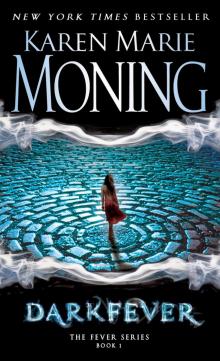 Darkfever
Darkfever Feversong
Feversong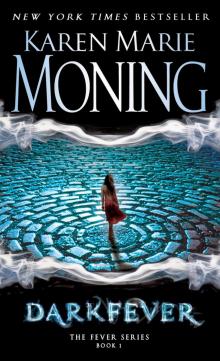 Faefever
Faefever Bloodfever
Bloodfever Beyond the Highland Mist
Beyond the Highland Mist Iced
Iced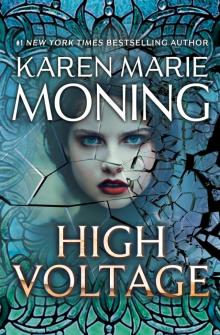 High Voltage
High Voltage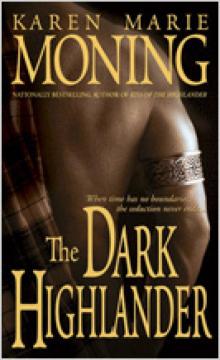 The Dark Highlander
The Dark Highlander Shadowfever
Shadowfever The Highlander's Touch
The Highlander's Touch To Tame a Highland Warrior
To Tame a Highland Warrior Burned
Burned Feverborn
Feverborn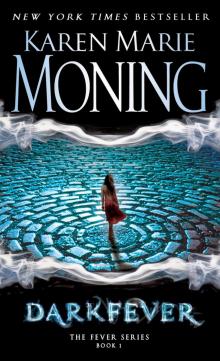 Dreamfever
Dreamfever Spell of the Highlander
Spell of the Highlander Kiss of the Highlander
Kiss of the Highlander The Immortal Highlander
The Immortal Highlander Karen Marie Moning’s Fever Series 5-Book Bundle: Darkfever, Bloodfever, Faefever, Dreamfever, Shadowfever
Karen Marie Moning’s Fever Series 5-Book Bundle: Darkfever, Bloodfever, Faefever, Dreamfever, Shadowfever Dreamfever f-4
Dreamfever f-4 Feversong: A Fever Novel
Feversong: A Fever Novel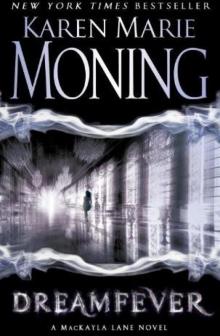 Dreamfever_The Fever Series
Dreamfever_The Fever Series The Highlander Series 7-Book Bundle
The Highlander Series 7-Book Bundle![[Highlander 04] - Kiss of the Highlander Read online](http://i1.bookreadfree.com/i1/03/29/highlander_04_-_kiss_of_the_highlander_preview.jpg) [Highlander 04] - Kiss of the Highlander
[Highlander 04] - Kiss of the Highlander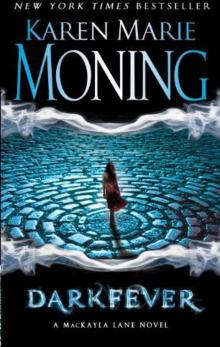 Darkfever_The Fever Series
Darkfever_The Fever Series Shadowfever_Fever
Shadowfever_Fever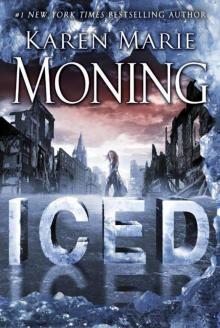 Iced: A Dani O'Malley Novel (Fever Series)
Iced: A Dani O'Malley Novel (Fever Series)![Fever [08] Feverborn Read online](http://i1.bookreadfree.com/i2/04/09/fever_08_feverborn_preview.jpg) Fever [08] Feverborn
Fever [08] Feverborn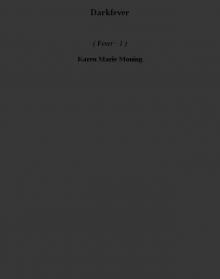 Darkfever f-1
Darkfever f-1 Faefever f-3
Faefever f-3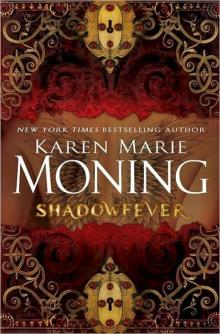 Shadowfever f-5
Shadowfever f-5 Bloodfever f-2
Bloodfever f-2